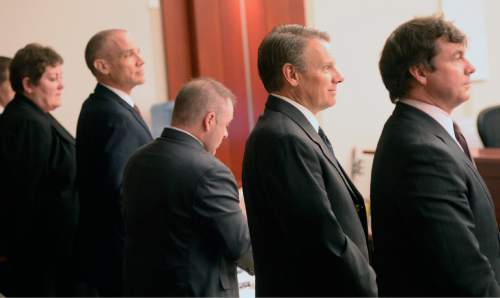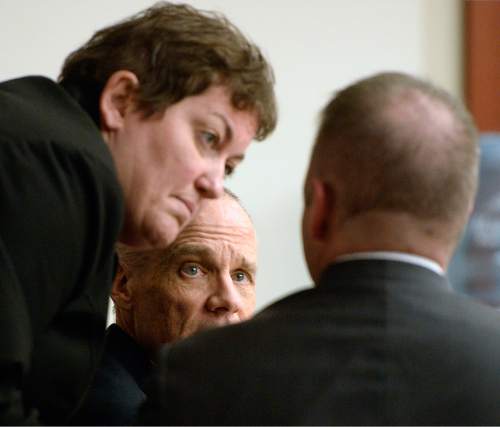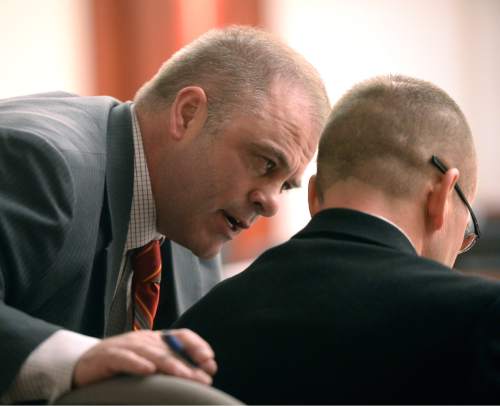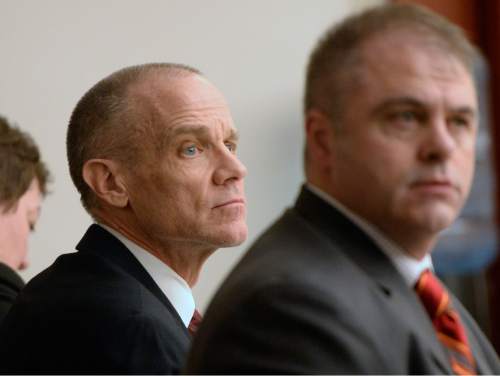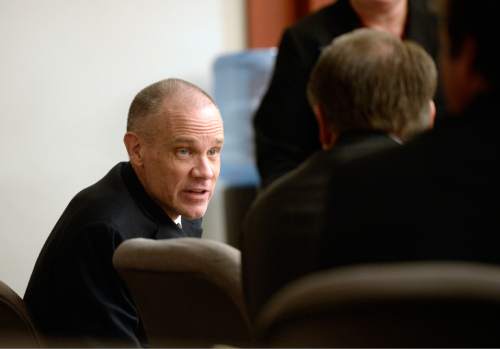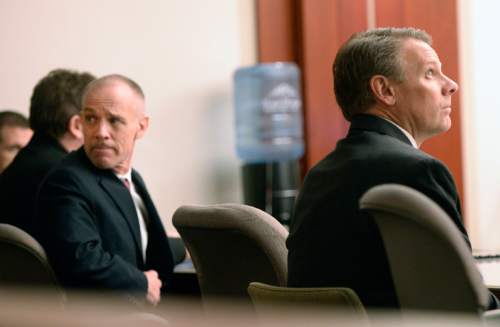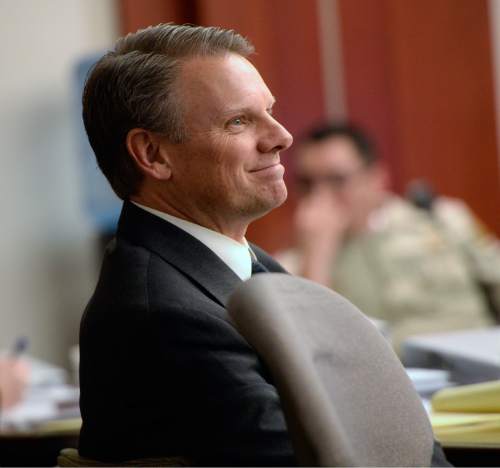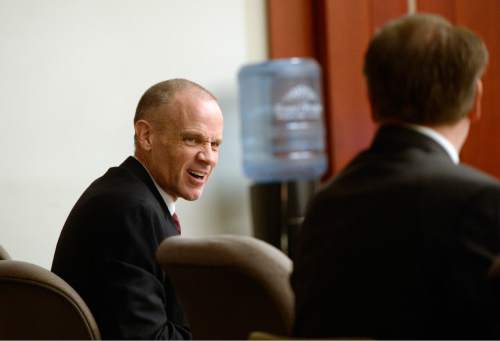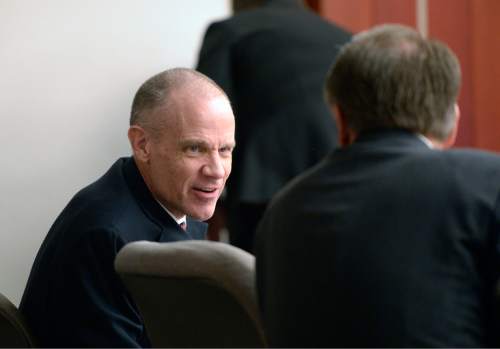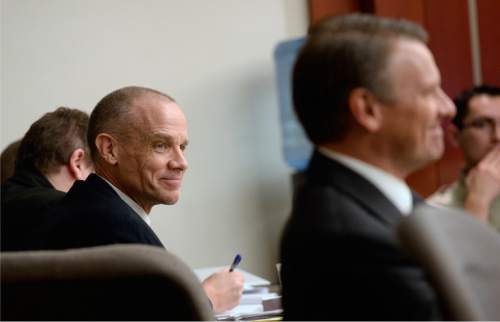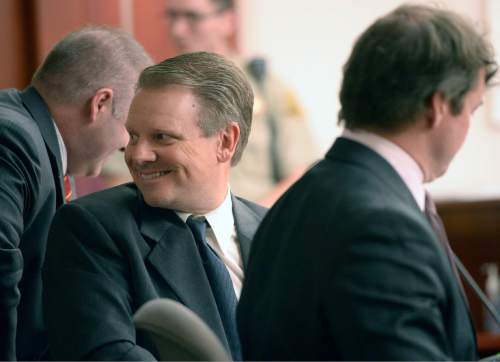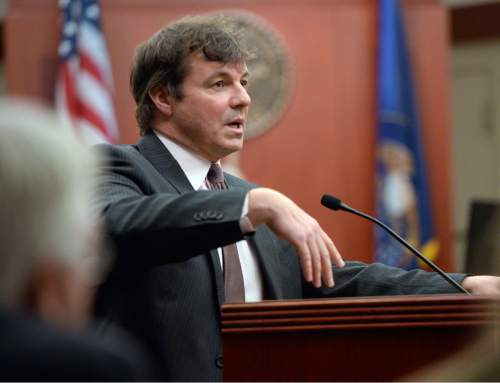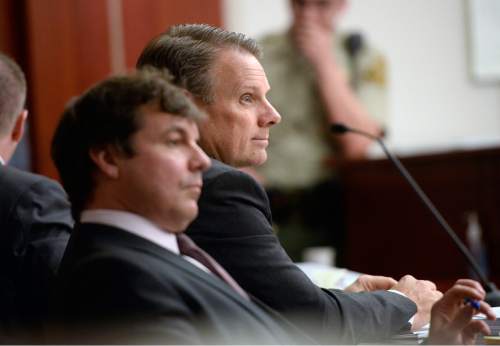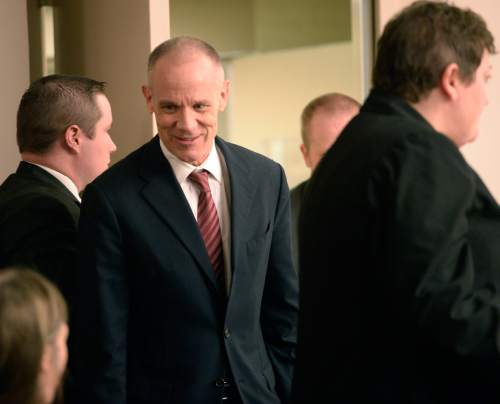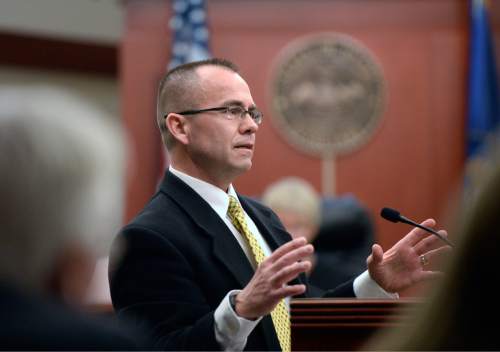This is an archived article that was published on sltrib.com in 2015, and information in the article may be outdated. It is provided only for personal research purposes and may not be reprinted.
A pair of Utah brothers promoting a luxury golf and ski development near Beaver failed to tell prospective investors they were on the brink of bankruptcy and faced a myriad of legal problems as they sought millions in funding to drive the Mt. Holly resort.
"The question you're going to have to ask is, would this have been important, before [investors] gave them money, " Tim Taylor, Utah County's chief deputy attorney told a 3rd District Court jury on Wednesday, during opening statements in the trial of Marc Sessions Jenson, 54, and Stephen Roger Jenson, 49.
The Jensons have each pleaded not guilty to multiple second-degree felony charges of fraud and money laundering in connection with the $3.5 billion development — a case that was initially filed in 2011 when Mark Shurtleff was Utah attorney general and has ties to the bribery scandal that left Shurtleff and his successor John Swallow facing criminal charges.
A one-time Shurtleff associate, Marc Jenson contends his prosecution is political payback for his refusal to comply with a "shakedown" by Shurtleff and Swallow, whom he claims squeezed him for cash and favors. Jenson raised the allegations publicly in 2013, becoming a key figure in the investigation that has swirled around the investigation of Utah's two former top cops for more than two years.
Shurtleff and Swallow have been subpoenaed to testify in the Jenson case, but attorneys for both men have filed objections, citing Fifth Amendment concerns.
At its heart, however, the case against the Jensons is not about politics, but about the millions that three investors — Jeffrey Donner, Tracy Fox and Shaun Rothwell — spent to buy into the development.
Affidavits filed in the case say that the $1.5 million price tag for getting in on Mt. Holly's ground floor would buy investors a membership in the private resort, a prime lot for a luxury home, and skiing and golf privileges on an 18-hole Jack Nicklaus-designed course, including access to 25 other Nicklaus courses and clubs around the world.
In court papers, Donner, Fox and Rothwell all say that neither Jenson brother ever disclosed that local residents had challenged the development in court or that they were struggling financially. The brothers also failed to disclose Marc Jenson's multiple bankruptcies and legal problems, including time served in prison for not paying taxes and a securities fraud conviction.
Attorneys for both brothers maintain the Mt. Holly project was a legitimate enterprise that fell apart when the New York-based hedge fund that had initially backed the resort cut off the flow of funding, leaving the Jensons unable see it through.
"The only reason this project failed was lack of funding … not an intent to deceive," Edward Stone, an attorney for Stephen Jenson, told the jury of five men and five women during his opening remarks.
Stone also asked jurors to try to remember that the case has two defendants, who may not necessarily be held responsible for each other's decisions and actions. Stone also said Marc Jenson's past financial and legal problems are not material to the Mt. Holly case, because his role was as an independent marketing contractor, not a project owner or principal.
"He could not withdraw money, he had no power over the finances, whatsoever," Stone said.
Marcus Mumford, who represents Marc Jenson declined to offer an opening statement.
Donner, a Ft. Collins, Colo., physician was among the prosecution's first witnesses, telling the court that in addition to the $1.5 million he had already invested, Marc Jenson asked him for a $2 million loan to help the resort project move toward completion. As collateral, Donner said, Jenson offered him a more exclusive property in the Tushar Mountains development and four original Arnold Friberg paintings. It was a loan Donner ultimately decided not to make.
Donner said he was told by Marc Jenson that Mt. Holly was a good investment with "no debt." He also said he would have wanted to know about Marc Jenson's past and the unstable nature of the project's finances before making an initial investment.
"You have to be able to trust the people you're dealing with," Donner testified. "To think that the primary people on this project had this kind of history — a rap sheet, basically — is unbelievable."
Donner also testified he never recouped his investment after the Mt. Holly project went bankrupt, nor did he receive the property or club memberships promised.
Also testifying was Craig Burton, a Murray real estate developer, whose company owned a 5 percent share in the Mt. Holly project and worked to acquire the land and ensure the development plans met Beaver County regulations.
Burton said the 2,000-acre project, which at one point had an appraised value of about $250 million, began to have financial trouble in June 2007 and that many of its subcontractors went unpaid.
"I was left holding the bag for obligations [my company] had incurred," Burton said during cross-examination by Mumford. "I've lost a great deal of money and promises were made and not kept."
If convicted following the nine-day trial, the Jensons each face up to 15 years in prison on each count.
The Mt. Holly project ultimately went into foreclosure and was sold at auction. It now operates under the name Eagle Point Resort.


